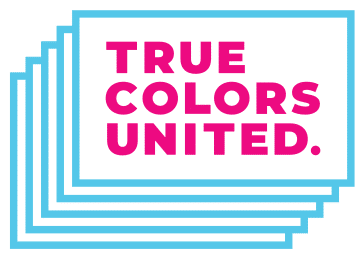For older children and youth in the foster care system, chances of adoption can be slim. After aging out of the foster care system, many youth and young adults find themselves on the streets or in a shelter. Our friends at You Gotta Believe have built their mission around the idea that it’s never too late for family. Founded in 1995 as a homelessness prevention program, the Brooklyn-based organization works to place youth ages 10 and up (with a particular focus on 16-21 year olds aging out of foster care) in loving homes of all shapes, sizes, and colors. We had a chance to talk with Mary and Susan from You Gotta Believe, and here’s what they had to say about LGBTQ youth and families:
You Gotta Believe: When families fall on hard times, they often get disconnected. We work with kids in the foster care system who will be aging out of care at 21 and try to get people in their lives certified as licensed, adoptive parents. We’ve connected kids with their social workers, therapists, former teachers, people that they’ve worked for, kindergarten teachers that remembered them, and former foster parents. These relationships can be rekindled. Family structures here are varied; we have a lot of families of different compositions-couples and singles, of all races, orientations, or identities. And we see them flourishing. The young people don’t care who it is, as long as it’s somebody who is going to support them.
According to the staff at You Gotta Believe, the majority of young people have someone in their life that could and would step up. What keeps this from happening? Sometimes it’s fear, sometimes it’s bureaucracy, sometimes we’re simply not asking the right questions.
Forty to None: How do you get youth engaged with these extended/alternative families?
YGB: We have youth advocates who had been adopted as teens. These youth talk about how powerful it is to have family in your life, even if it’s not the people that you once knew as your family. They ask young people who they know that they feel connected to, who they consider family. They also tell young people that they shouldn’t have to survive on their own, that there are alternatives to that. 80% of the youth that we place will ultimately be placed with someone they knew/know in their life.
When we asked about their work with LGBTQ young people, we were reminded of the ways many young people have to navigate multiple stigmatized identities. In preparation for their upcoming exhibition with Heart Gallery NYC focusing specifically on LGBTQ youth, You Gotta Believe staff faced challenges in identifying young people who were willing to be out about their LGBTQ identities and foster care system involvement.
YGB: We had an interesting experience where we said “we want to really highlight these [LGBTQ] young people,” and what happened was that we had a lot of difficulty getting them in for photos because they didn’t want the stigma of being gay or the stigma of being in foster care.
LGBTQ youth have been redefining family for decades and innovative programs like You Gotta Believe is listening to the voices of young people and pushing at the boundaries of what has historically constituted family. The work is critically important homelessness prevention for LGBTQ youth in the foster care system. Once LGBTQ youth age out of placement, safe spaces and secure connections are more difficult to find. Without permanent and supportive connections, LGBTQ youth may wind up homeless or becoming involved in the justice system….but not if You Gotta Believe has anything to do with it!
Learn more about You Gotta Believe.
